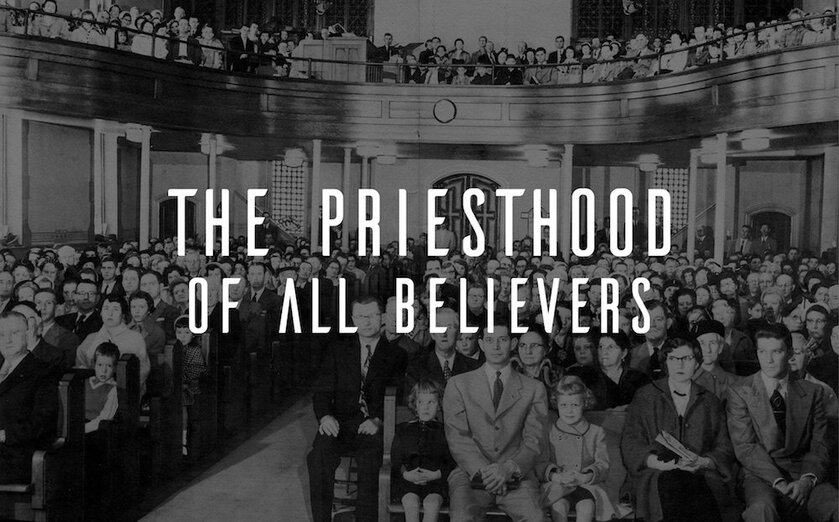Unshaken Faith: Stephen’s Bold Confrontation with a Rebellious Heart
Read Acts 7:1-53 [Stephen's Sermon]
And the high priest said, "Are these things so?" And Stephen said:
"Brothers and fathers, hear me..."
(vs. 51-53) "You stiff-necked people, uncircumcised in heart and ears, you always resist the Holy Spirit. As your fathers did, so do you. Which of the prophets did your fathers not persecute? And they killed those who announced beforehand the coming of the Righteous One, whom you have now betrayed and murdered, you who received the law as delivered by angels and did not keep it."
Stephen, filled with the Holy Spirit, delivers a powerful sermon before the Sanhedrin (a council made up of men only), boldly recounting Israel’s history and confronting the religious leaders with their rebellion against God. His words are not merely a defense but a Spirit-led proclamation of truth, culminating in a piercing rebuke of their resistance to God’s Spirit and their betrayal of the Messiah.
Stephen strategically anchors his message in the faith of Israel’s patriarch, he takes them back to the time of Abraham and his journey of faith. Stephen begins in this way to assure them that he is NOT preaching a different god. And he assures them that he is indeed preaching about the God of their fathers. By recounting Abraham’s obedience and trust in God’s promises (vs. 2-8), Stephen counters accusations that his signs, wonders, and teachings stem from a false god.
This reminds us of the importance of grounding our faith and our witness in the truth of God’s unchanging word which tells us about His character. Stephen’s example challenges us to know and share the story of God’s faithfulness, connecting the past to the present. It also calls us to proclaim Christ with clarity, showing how He fulfills God’s promises rather than contradicts them.
God promises the land to Abraham's descendants, and these Jews are now living in that land. Abraham himself died in faith not having received this promise (Hebrews 11:13), trusting God’s word despite not seeing its fulfillment. God also told Abraham that the people would be in bondage in a different land for 400 years (Acts 7:6, Genesis 15). A promise fulfilled through their bondage in Egypt and their eventual deliverance. These examples underscore God’s unchanging character, His promises are sure, even when their fulfillment unfolds across generations.
And Abraham received the "token" of the covenant, circumcision (Acts 7:8; Genesis 17:10-11); which God gave Abraham as a visible sign of His binding promise. This token marked Abraham and his descendants as God’s chosen people, set apart for His purposes. By beginning with Abraham and the covenant, Stephen assures his audience that he is not preaching a foreign god but proclaiming the same God who initiated this covenant relationship. The token of circumcision was a reminder of God’s faithfulness, yet Stephen’s sermon builds to a rebuke: the religious leaders, though bearing the covenant’s sign, resist the Holy Spirit and reject the Righteous One, Jesus (vs. 51-53). This contrast profoundly underscores that true covenant of faithfulness goes beyond outward signs to a heart transformed by God. The physical ritual doesn't necessarily get the job of rebirth done. The true baptism is of the heart. Water doesn't do it, cutting the flesh doesn't do it. The baptism of the Holy Spirit is a baptism of the heart. Scripture teaches, true circumcision is of the heart, by the Spirit (Romans 2:29; Deuteronomy 30:6). The baptism that transforms is the baptism of the Holy Spirit, renewing us inwardly to live for God.
Stephen’s sermon challenges us to examine our own faith. Are we relying on outward rituals or traditions, or are we seeking the Spirit’s transforming work in our hearts? His example calls us to root our witness in God’s unchanging Word, boldly proclaiming Jesus as the fulfillment of the covenant. True faithfulness means a heart surrendered to the Spirit, set apart for God’s purposes, and aligned with His truth.
Holy Spirit baptism is the spiritual immersion of a believer into the presence and power of the Holy Spirit, marking a profound encounter with God. The New Testament describes Holy Spirit baptism as an inward reality that regenerates, empowers, and equips believers for God’s purposes. Even in the law, it was the heart that was being circumcised, making Abraham's descendants a "spiritual" people.
John 3:5-6:
Jesus speaks of being
"born of water and the Spirit,"
emphasizing the Spirit’s role in spiritual rebirth.
Acts 1:5, 8:
Jesus promises the disciples they will be
"baptized with the Holy Spirit,"
receiving power to be His witnesses.
1 Corinthians 12:13:
Paul writes,
"For in one Spirit we were all baptized into one body,"
indicating that Holy Spirit baptism unites believers with Christ and His church.
Titus 3:5: And again, the
"washing of regeneration and renewal of the Holy Spirit"
describes the Spirit’s cleansing work in salvation.
Unlike physical rituals, Holy Spirit baptism is a sovereign act of God, not dependent on human effort or external signs. It is the "circumcision of the heart" (Romans 2:29; Colossians 2:11-12), fulfilling the Old Testament call for inward transformation (Deuteronomy 30:6; Jeremiah 31:33).
Stephen goes on to run down the corruption of their forefathers, laying out the lineage of Jacob. His narrative is not merely historical but a pointed indictment, exposing a pattern of rebellion that culminates in the religious leaders’ rejection of Jesus, the Righteous One (vs. 51-53). Stephen also references the tabernacle and temple (vs. 44-50), noting that even these sacred spaces became points of pride, as Israel’s forefathers often prioritized ritual over true worship of God, who "does not dwell in houses made by hands" (v. 48).
By laying out Jacob’s lineage and the corruption of Israel’s forefathers, Stephen assures his audience that he is speaking of the same God who worked through their history; the God of Abraham, Isaac, and Jacob. However, his recounting serves a deeper purpose: to expose the persistent unfaithfulness of God’s people. From Joseph’s brothers to the wilderness generation, Israel repeatedly resisted God’s plan and persecuted His messengers, a pattern Stephen sees mirrored in the Sanhedrin’s rejection of Jesus.
This challenges us to reflect on our own hearts. Are we, like Israel’s forefathers, prone to resisting the Holy Spirit through pride, disobedience, or misplaced priorities?
Stephen’s example calls us to know God’s story, recognizing both His faithfulness and humanity’s tendency to stray away from God's truth. It also urges us to proclaim Christ with clarity, confronting sin while pointing to Jesus as the fulfillment of God’s redemptive plan. True faithfulness, Stephen shows, requires a heart transformed by the Spirit, not merely an outward connection to a sacred lineage or ritual.
Examine Your Heart:
Are you relying on outward rituals, traditions, or heritage, like the Sanhedrin, or seeking the Spirit’s inward transformation? Invite the Holy Spirit to renew your heart daily, breaking any patterns of pride or disobedience.
Know God’s Story:
Stephen’s recounting of Israel’s history shows the value of understanding God’s redemptive plan. Study Scripture to see how God’s promises from Abraham to Christ unfold, equipping you to share this story with others.
Proclaim Christ Boldly:
Like Stephen, proclaim Jesus as the fulfillment of God’s covenant, confronting sin with truth and grace. Rely on the Holy Spirit’s power to speak boldly, even in opposition.
Seek Holy Spirit Baptism:
Pursue the Spirit’s fullness through repentance, prayer, obedience, and expectancy (Acts 2:38; Luke 11:13; Acts 5:32). Whether at conversion or as a subsequent empowerment, the Spirit’s work is essential for a vibrant faith.
Avoid Israel’s Mistakes:
The corruption of Israel’s forefathers warns us against resisting God’s Spirit. Guard against misplaced priorities, such as valuing ritual over relationship or institutions over intimacy with God.
Conclusion:
The Jews failed to recognize God's purpose throughout their entire history. They failed to recognize Jesus [Messiah] and bow down to him at his first advent. And at His second coming ALL will bow down before Jesus.
In what areas of your life might you be resisting the Holy Spirit, and failing to recognize Jesus as the Messiah, like Israel’s forefathers, and how can you surrender to His transforming work today? What steps can you take to pursue the baptism and ongoing filling of the Holy Spirit, allowing Him to empower your witness and renew your heart?
Prayer
Father, thank You for Your unchanging faithfulness, from Abraham to Jesus. Forgive me for any resistance to Your Holy Spirit through pride, disobedience, or reliance on the traditions of men and their outward rituals. Baptize me afresh with Your Spirit, renewing my heart and empowering me to proclaim Christ boldly. Like Stephen, help me to know and share Your redemptive story, pointing others to Jesus as the fulfillment of Your promises. May my life reflect true covenant faithfulness, transformed by Your Spirit. Amen.




















